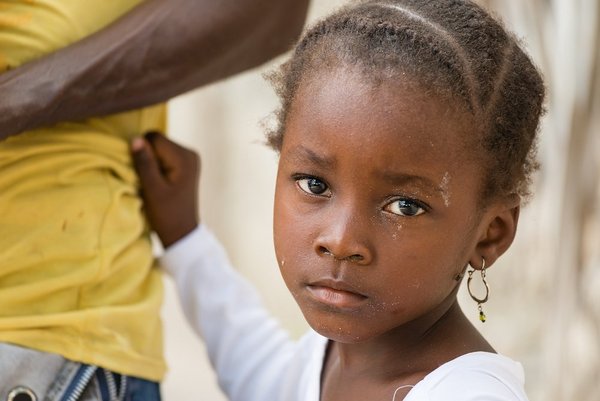 Read this article in French
Read this article in French- Share this article
- Subscribe to our newsletter
WHO recommends R21/Matrix-M vaccine for malaria prevention in children
The R21 vaccine is the second malaria vaccine recommended by WHO, in last October, following the RTS,S/AS01 vaccine, which received a WHO recommendation in 2021. Both vaccines are shown to be safe and effective in preventing malaria in children and, when implemented broadly, are expected to have high public health impact.
Malaria, a mosquito-borne disease, places a particularly high burden on children in the African Region, where nearly half a million children die from the illness each year notes WHO in a press release from October 2023.Demand for malaria vaccines is unprecedented; however, available supply of RTS,S is limited. The addition of R21 to the list of WHO-recommended malaria vaccines is expected to result in sufficient vaccine supply to benefit all children living in areas where malaria is a public health risk.
According to a press release of the University of Oxford from January this year, the vaccine was developed by the university's Jenner Institute and the Serum Institute of India with support from the European and Developing Countries Clinical Trials Partnership (EDCTP), the Wellcome Trust, and the European Investment Bank (EIB). To date, the R21/Matrix-MTM malaria vaccine has been licensed for use in Ghana, Nigeria and Burkina Faso. In combination with public health measures such as the use of insecticide-treated bed nets, this vaccine can help save and improve the lives of millions of children and their families.
Key features of the R21 malaria vaccine:
The updated WHO malaria vaccine recommendation from October is informed by evidence from an ongoing R21 vaccine clinical trial and other studies which showed:
- High efficacy when given just before the high transmission season: In areas with highly seasonal malaria transmission (where malaria transmission is largely limited to four or five months per year), the R21 vaccine was shown to reduce symptomatic cases of malaria by 75 per cent during the twelve months following a three-dose series. A fourth dose was given a year after the third maintained efficacy. This high efficacy is similar to the efficacy demonstrated when RTS,S is given seasonally.
- Good efficacy when given in an age-based schedule: The vaccine showed good efficacy (66 per cent) during the twelve months following the first three doses. A fourth dose was given a year after the third maintained efficacy.
- High impact: Mathematical modelling estimates indicate the public health impact of the R21 vaccine is expected to be high in a wide range of malaria transmission settings, including low transmission settings.
- Cost effectiveness: At prices of two to four US dollars per dose, the cost-effectiveness of the R21 vaccine would be comparable with other recommended malaria interventions and other childhood vaccines.
- Similarity of R21 and RTS,S vaccines: The two WHO-recommended vaccines, R21 and RTS,S, have not been tested in a head-to-head trial. There is no evidence to date showing one vaccine performs better than the other. The choice of product to be used in a country should be based on programmatic characteristics, vaccine supply and vaccine affordability.
- Safety: The R21 vaccine was shown to be safe in clinical trials. As with other new vaccines, safety monitoring will continue, the WHO concludes.
At least 28 countries in Africa plan to introduce a WHO-recommended malaria vaccine as part of their national immunisation programmes. Gavi, the Vaccine Alliance has approved providing technical and financial support to roll out malaria vaccines to 18 countries. The RTS,S vaccine will be introduced in some African countries in early 2024, and the R21 malaria vaccine is expected to become available to countries mid-2024.
(WHO/Oxford University/wi)
More information:





Add a comment
Be the First to Comment